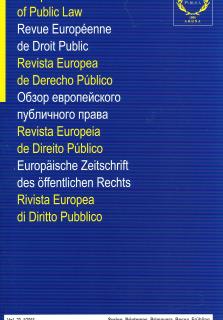
Global Administrative Order
The Austrian Perspective
The Austrian report emphasizes that an analysis of recent developments in the field of international cooperation gives good reasons for the introduction of the term “Global Administrative Order” even if it doubts that this order has a strictly legal character. The intensive discussion during the last years on the role of international fora such as the WHO and the Basel Committee in (former) national affairs points out that international cooperation in tackling problems such as the financial crisis and the swine flu can be the best option for states. To assess the role of influential entities such as the WHO, the UNFCCC and ILO as well as of powerful regulating players like the Basel Committee and the IMF, the report assesses whether the international body unfolds any law-making activity and, moreover, whether the national law-making activities are interfered by the international decision-making. In this assessment two things become apparent: first, international cooperation seems to be crucial for tackling problems that can hardly be solved on national level, like environmental preservation or regulation of the global financial system. Second, there is no obligation for the national executive to act according to an international obligation, as far as the parliament has not transposed it into national law, as Art. 50 para. 1 of the Federal Constitution stipulates and as far as the legislator did not confer singular competences to organs of international bodies as Art. 9 of the Federal Constitution provides for.





















